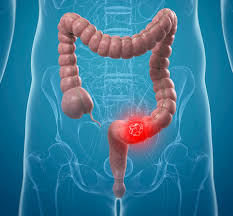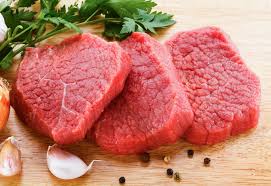Also called colorectal cancer, colon cancer occurs when a polyp in the lining of rectum or colon becomes malignant. Colon cancer is among the most common cancer types today, but you can learn ways to prevent colon cancer by detecting precancerous polyps early. You have to keep in mind that if not detected early, it could lead to life-threatening consequences. In fact, it is the second leading cause of cancer deaths in the U.S. Let's find out more about it.

How to Prevent Colon Cancer
You can improve your chances of recovery by identifying those precancerous polyps. Moreover, you can take steps to lower your risk of developing those growths in the first place. Here is what you can do.
1. Pay Attention to Your Weight
Other than smoking, being overweight is the biggest risk factor for cancer. You can develop 11 different types of cancer if you are obese, and colon cancer is among them. Ideally, you should weigh as much as it was when you were 18 years old. It may not be that simple, but your first goal should be to stop gaining more weight for now. Then, you can combine a diet and exercise plan to help lose pounds.
2. Quit Smoking
If you smoke, consider taking steps to quit today. Not smoking is among the best things you can do to stay healthy. Not only does it increase your risk of stroke, heart disease, and emphysema, it also puts you at an increased risk of getting 14 different types of cancer. You can work with your doctor to learn about how you can go about quitting tobacco.
3. Have an Active Lifestyle
Eager to learn how to prevent colon cancer? Well, be active. You need to be physically active to stay healthy. It saves you from dealing with several serious diseases, including heart disease and colon cancer. Regular activity also provides you with a good mental boost and improves mood as well. You do not have to spend hours upon hours in the gym; in fact, a 30-minute walk a day can do the trick. Cycling, brisk walking, gardening, and dancing are all good options.
4. Avoid Drinking
Ideally, you should not drink at all, but it will help if you can just limit the amount you drink regularly. When you drink it in moderation, it can actually offer some cardiovascular benefits. Drink too much and you increase your risk of colon and other types of cancer. Women should have no more than a drink a day, whereas men should limit their intake to two drinks a day.
5. Increase Your Intake of Vitamin-D and Calcium
Not having enough calcium and vitamin-D in your diet also increases your risk of colon cancer. Ensure that you are getting at least 1,000mg of calcium every day and no less than 1,000IU of vitamin-D a day. If you are in northern parts of the country, are overweight, or have darker skin tone, you should have your vitamin-D levels tested regularly.
6. Stay Away from Red Meat
Studies show that intake of red meat is not good for the health of your intestines. Knowing how to prevent colon cancer is partly about learning how to find better alternative to red meat. Red meat as well as diets heavy in salted, processed, cured, or smoked meats, such as sausage, bacon, and hot dogs may also put you at an increased risk of developing colorectal cancer. If you really have to eat red meat, ensure that you do not go for more than two 4-ounce portions per week. Also, opt for lean cuts and get rid of the fat as well. Do not char the meat on a grill.
7. Include Black Raspberries in Your Diet
There are some studies suggesting that you can lower your colon-cancer risk by including black raspberries in your diet. Increasing your intake of veggies and fruits in general could give you some protection against colorectal cancer. Be sure to have at least five servings of a variety of fruits and veggies every day.
8. Know Your Family History
In case of colon cancer, heredity plays an important role, as more than 20% patients of colon cancer have a relative with the same disease. If anyone in your family has colon cancer or has been treated for precancerous polyps, you may want to go for some testing to confirm that you do not have the same. Also, pay attention to their age when they were diagnosed. You should start getting screened at age 40 if one of your parent, child, or sibling (first-degree relatives) developed colon cancer before age 60.
9. Increase Your Intake of Fiber
Wondering how to prevent colon cancer? A very important thing you can do to lower your risk of colon cancer is increase your intake of fiber. While there is conflicting research on if fiber really plays a role in lowering your colon cancer risk, it still makes sense to include lots of fiber in your diet. It helps keep your digestive system healthy and improves overall health. Some great sources of fiber are whole-grain cereals, berries, prunes, veggies, fresh fruits, brown rice, and legumes. You can also take fiber supplements to increase your intake of fiber – methylcellulose and psyllium are a couple of good option. Just be sure to increase your intake slowly to prevent gas and abdominal discomfort.
10. Get Regular Screenings
If you are at an average risk of colon cancer, you may want to get screened soon after you are 50 years old. People with a family history of colon cancer should consider screening at an earlier age. You can opt for many different screening options, but be sure to discuss benefits and drawbacks of each option with your healthcare provider.





